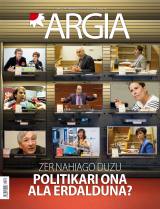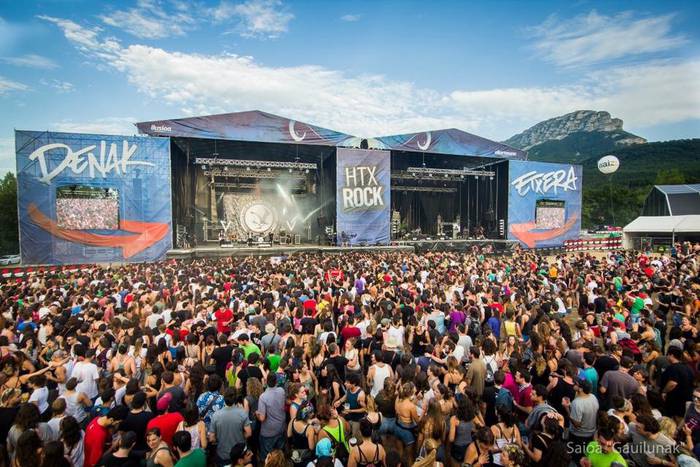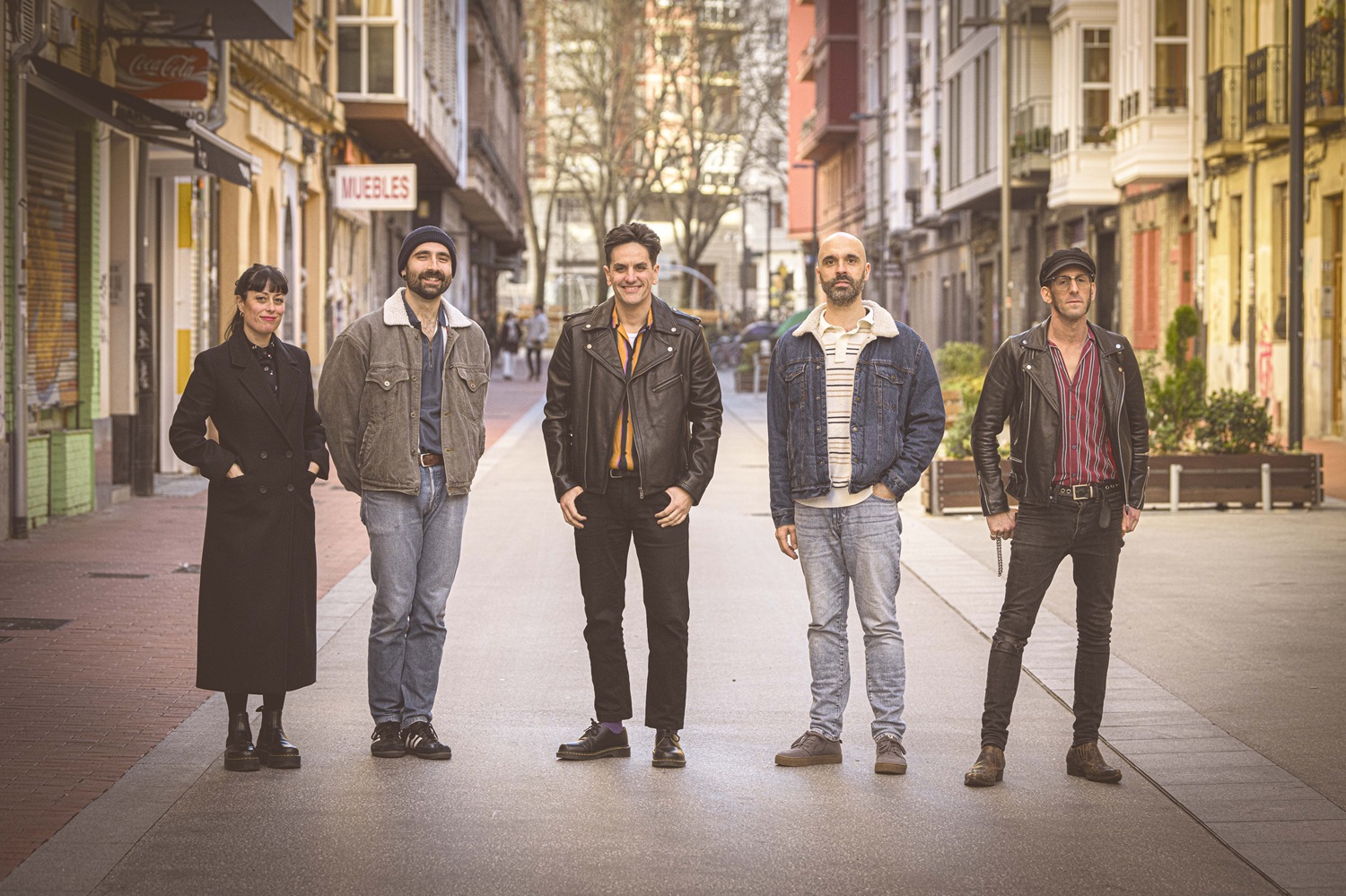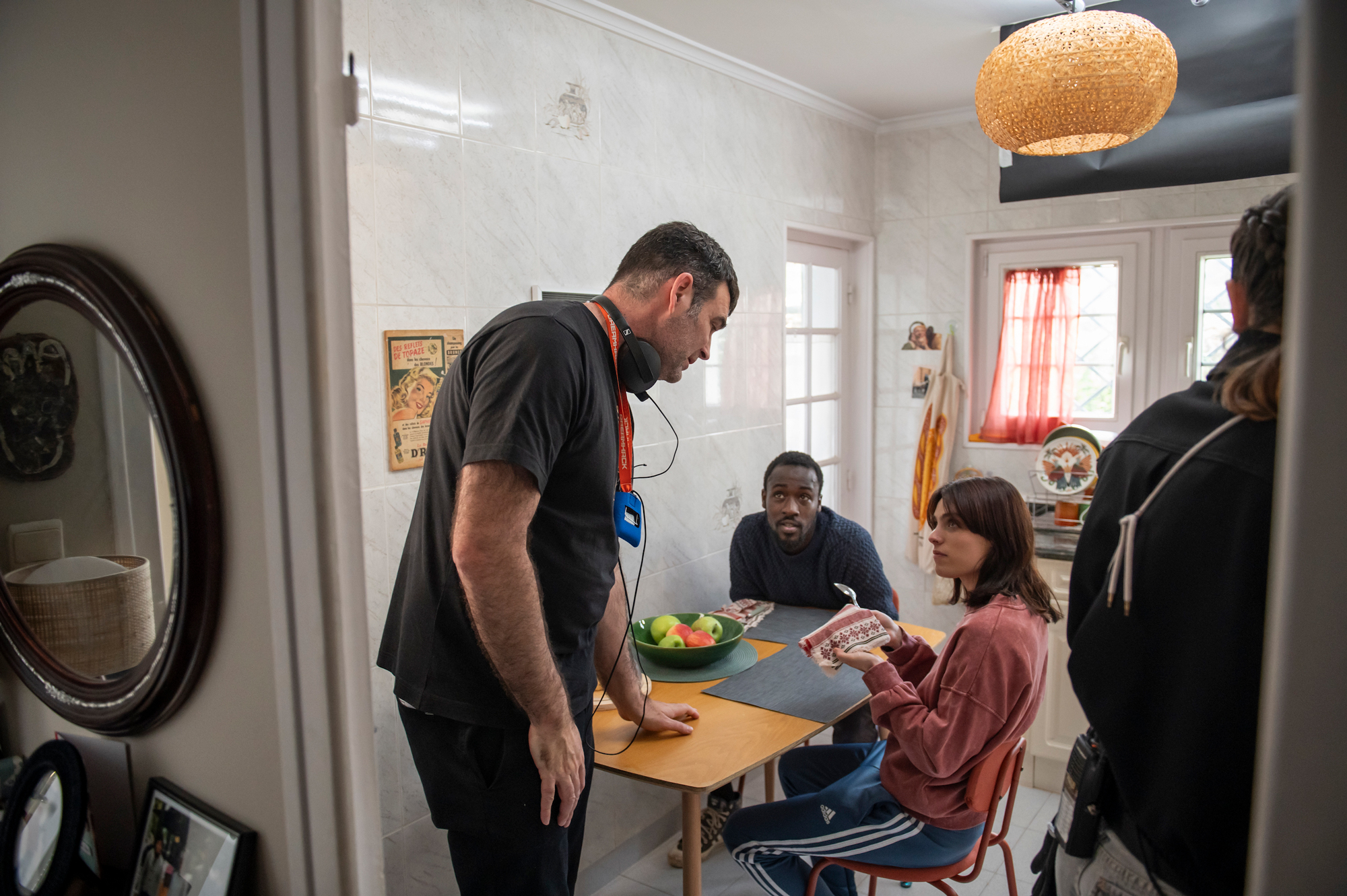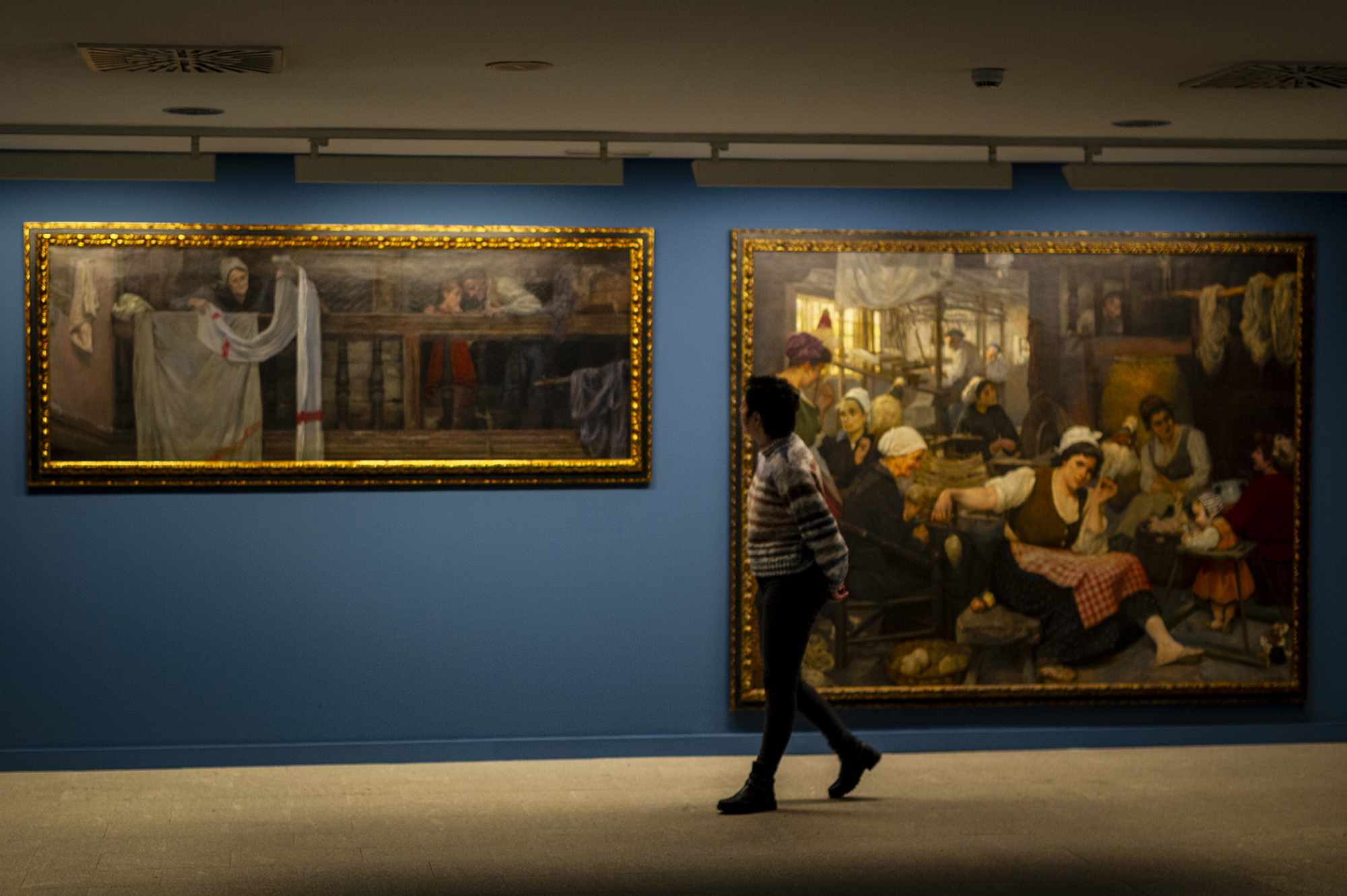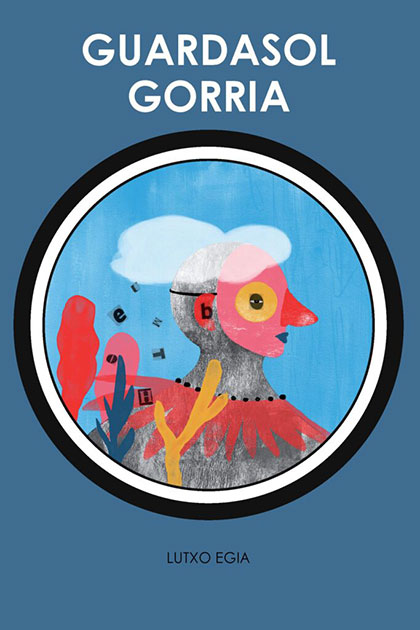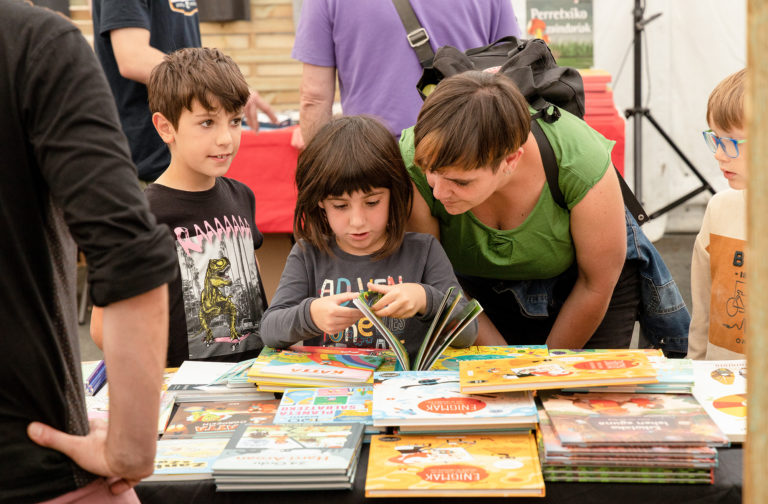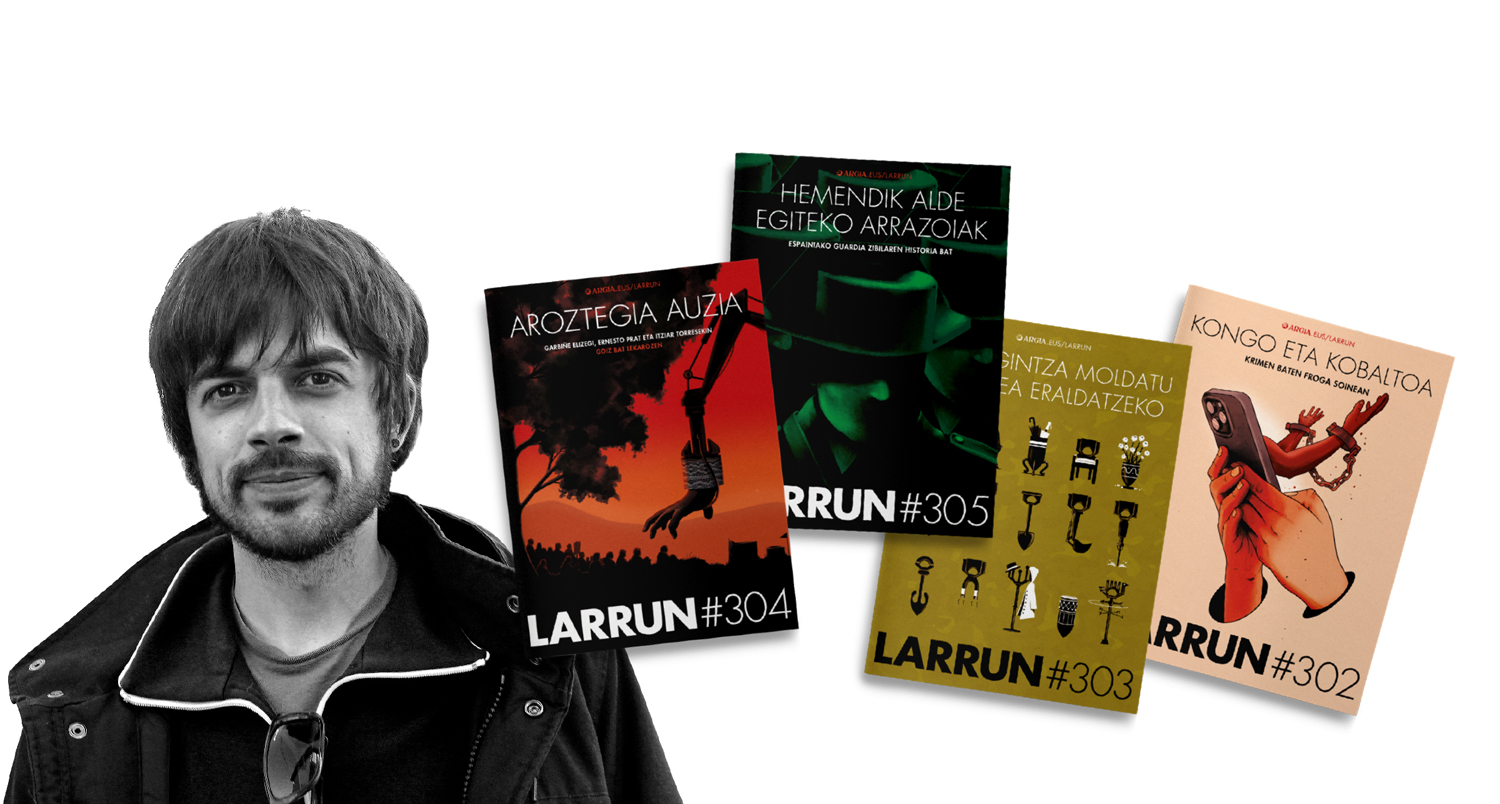Cross-border and institutional film festival
- Val de la Calzada de Extremadura, 1958. When he was one year old, he emigrated with his parents to the French department of Gers. From there he moved to Irun, to the Moscow district. He then settled in Hendaia. “You’re a rare bird, Angela.” A shy smile spread through him. “I don’t know who I am,” he told us.
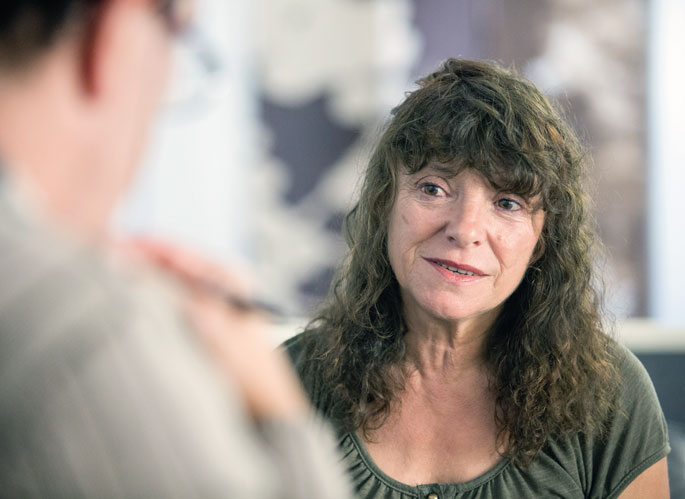
He started studying law. A friend told us you wanted to be a lawyer for the undefended.
But by chance, I've worked as a seamstress, a hairdresser or a cook. The daughter of a poorly treated migrant father from a country in the world. At home we were cold and hungry. You never forget that. I'm a photographer. I often travel around the world, especially the oppressed peoples, and I notice that we don't care how they live. They're exploited because we want more and more in the West. From a young age I am aware that the Basques are indigenous here, but the Basques are also becoming something similar to the conquerors. From the moment we put ourselves in the institutions, fini. I now refer to Ipar Euskal Herria, after learning about the experience of the Hendaia film festival.
You are the director of the festival. This year has been the third edition. What's your experience?
The next day I was empty, like after a delivery. At the closing ceremony he said “you have done nothing.” At the farewell dinner, people were happy, filmmakers were having impressions and contacts, but I was hallucinated. I felt nothing but helplessness and I couldn't think of projects I hadn't been able to accomplish.
You seem to have a number of reasons for complaining.
This year, unlike the first year, the authorities and the media have not given us any attention, either in French or in Spanish, with the exception of the Sud-Ouest newspaper. We have shown that the festival is valuable and worth it. In Hendaia, the ball, rugby, or harrijasotzailes and aizkolaris are the main expressions, especially folklore. The festival has opened the spirit of the people, we have demonstrated during these three years that film culture has room.
How did the festival come about?
He made social photographic exhibitions. Together with them he offered lectures. However, people did not come for the interest of the topic, but because the author was Ángela. Because the photos were nice and others. Nothing else. I don't care about having a nice photo. My wish is to make known what is happening in the world. I wasn't in my head organizing a film festival. I wanted to organize a kind of encounter through a series of films, aimed at a limited number of people. However, I set up the festival as if it were an exhibition. To tell the truth, I was wrong. I was declared crazy.
How would you define the Hendaia Film Festival?
I left without giving a definition, but I thought of the idea that the spectacle should serve for exchange: to be an example of companionship, socialism, solidarity and openness. Openness, first to citizenship and then to institutions. I have met my goal, I say it with humility. I have also felt satisfied, but not entirely. We have managed to bring the people of Hegoalde and Iparralde together in part, but not as much as we wanted. In addition, they have approached France, Spain, Europe and the world from within, and the size of the film has surpassed us.
It's a short film festival. Why?
The short film is like a photo, it has to get an impact in a short time, like a good photo. A good photographer can become a filmmaker. The short has to transmit it instantly, people without getting bored, it is difficult, but very adequate and nice.
What is the festival budget?
This year’s price has been EUR 24,000, but we do not have to pay the minimum. Nobody charges a penny. I have not seen a euro, every day of the year working. I haven't had time to work photography. The festival was made possible by the Begiradak association, which I founded for photography, which has given us a legal basis. People come together who have another way of understanding life, who seek alternatives to the system, some are marginalized or invalid, dignified people. At the festival they are very happy and occupy a place among the people.
What else do you need to get what you want?
Most of all, I don't want to be the festival of Angela Mejias. I want the catalog, the movies and everything you do onstage to be done in three languages. This year's editorial is only in French. The first year we had cross-border aid, in cooperation with the Council, on the occasion of the Euskaraz bizi nahi dut campaign. We entered the festival, it was a section of our own. But the shorts weren't good. They brought the films with good intention and kindness, but there were few. For the second year, I asked them for more quality. They did not improve their input and this year it was not that department. It is not enough to compete, the jobs that are brought in need of minimum quality. We have translated the short films in French until they have given us the possibilities and the money. One of the objectives of the festival is to facilitate intercultural understanding.
The Aquitaine Region should, above all, help the festival, but it has not been so. The positions of the institutions have been very confusing.
First of all, a statement: The French from the cross-border institution of Aquitaine and the Basque Country refuse to cooperate with the South. The Government of the Aquitaine Region in three years has given us nothing. The first year is normal. But in the second, we teach them what we are able to do. I received a letter in which I refused my help. I have particularly criticised the Region, the EEP and the Cross-Border Agency. The Sud-Ouest newspaper has interpreted my words very badly. He said it was miserable aid, because we received EUR 1,400; and all my criticism was passed on to EKE. Wrong. I appreciate the director of Pantxoa Etxegoien at EKE. But the truth is that of those EUR 21,400, EUR 20,000 have been received from the House of the People of Hendaia. The rest, EUR 2,600, have been provided by the citizens, who have decided to withdraw the accounts. I would particularly like to thank former Mayor Battitte Salaberry, who, being mayor, gave a push to the festival, believing in the project. Without that money, how would we pay for air travel and other expenses for judges? Some say the festival is my whim. The EEP does not understand that the films have to be translated. Translations are expensive. You need subtitles and good ones. Translators, assemblers and technicians are paid.
What baggage has left us this year’s festival?
In the International section we have made top-notch films. Coming from countries like Serbia or Slovenia, unknown to us. The festival is an opportunity to make the filmmakers of the future known and for the viewers here to know their films. In the Aquitaine Euskadi section we have collected the best short films made in the Basque Country, we have the leading authors, Telmo Esnal, Asier Altuna... Maleruski are not known in Aquitaine. They are the best Basque filmmakers in both the short and the length of the film. Amama has been the second most viewed film in the state, but the French don't care about the quality of Hegoalde's film. That irritates me.
What film would I highlight?
The award-winning Maman(s) of Maïmouna Doucouré is very good, but David P. Artificial by Sañudo and Anomalo de Aitor Gutiérrez are no worse, both from the Basque Country. In the international section, the winner was The Fish of My Life (Lithuania), by Julius Siciunas (UK). The winners are good and the unrewarded too. Above the awards I would praise the short film in general: it seems that the shorts do not count anything, but they tell you the essentials. We're in the world, it's a small collection of images that tell us what we are in everyday life. The short film is a reflection of the routine, a great daily artistic expression.
Transparent Beings
When: April 20th.
In which: In the Plaza of the Castle of Pamplona.
-----------------------------------------------
The concert is only half an hour away in the Plaza del Castillo de Pamplona; but it is still half empty, because it is raining. Whether... [+]
Obduction of Amenaza / Zirt Zart (Split-ep)
2024
---------------------------------------------------
The musical panorama is gigantic, impassable. Among them there are a few large groups that absorb all the foci; many others that are dedicated to the pursuit of it, and... [+]
Guardasol gorria
Lutxo Egia
Susa, 2024
Iruñea ez da oso handia, baina Beñat Iturbek elkarrizketarako lekua hautatu duen arte ez dut jakin institutu berean ikasi genuela. Madril eta Iruñea artean bizi da, han hemen baino gehiago, oraingoz. Etxera egin duen bisita bat probestu dut harekin... [+]
Apirilaren 24an, ETB1ean, jendeak aspalditik eskatzen zuen programa eredu bat estreinatuko da: Linbo, late night formatuko ordubete inguruko saioa, gazteek eta gazteentzat egina.









